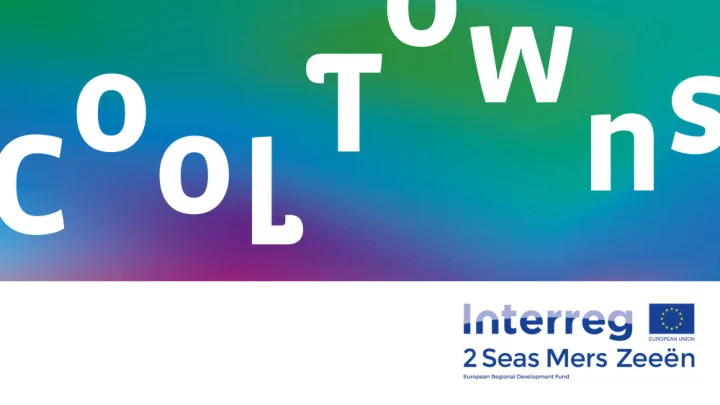

Blue & Green Infrastructure as a mitigation measure for heat stress Dr Debbie Bartlett University of Greenwich, UK Spatial adaptation for heat resilience in small and medium sized cities | Middelburg, NL | 20 February 2019
Built environment Lack of air movement people experiencing discomfort In public open space
Reducing incident radiation • Shade • Reflecting radiation Perception of coolness Reducing conductivity • Fluttering material • Light colour Cooling the microclimate • Movement of water • Texture • Rustling of leaves Evaporation Air movement • Water feature • Misting/spraying on surfaces • Vegetation
Blue & green infrastructure
Which intervention is most suitable?
Each situation is different Interventions all have • Benefits for the microclimate • Disbenefits • Co (additional) benefits Understanding these helps make decisions
Tree planting Effectiveness depends on: • Foliage shape and dimensions • Leaf area density • Seasonal cycle • Daily transpiration For shade: • Height of trunk • Canopy spread
Evapo-transpiration cooling Benefits Shade maintenance – watering time to grow Disbenefits clearing fallen leaves aesthetics Co-benefits recreation, relaxing, health, air quality biodiversity
Green Walls and Facades
Evapo-transpiration cooling Benefits Reduces effect of building material maintenance watering, trimming Disbenefits installation costs insulation – internal cooling Co-benefits aesthetics air quality biodiversity
Swales and Rain Gardens
Benefits Evapo-transpiration cooling maintenance - trimming Disbenefits may collect litter flood mitigation Co-benefits aesthetics recreation, relaxing, health, biodiversity - pollinators
Water features
Evapo-transpiration cooling Benefits physical cooling (contact) zoonoses (contact) Disbenefits safety aesthetics Co-benefits biodiversity
So how do you decide?
Recommend
More recommend